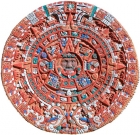Chronological Understanding
With very young children this can be as simple as beginning to understand today, tomorrow and yesterday. Days of the week and months of the year will be introduced in other curriculum areas such as numeracy and these can be built on in history activities. Concepts such as older/younger and oldest/youngest will gradually be introduced as the child gains in confidence. These concepts need to be taught in the context of a child’s own experiences. Read more
-

Developing pupils' chronological understanding
ArticleClick to view -

Constructivist chronology and Horrible Histories
ArticleClick to view -

Enhancing temporal cognition: Practical activities for the primary classroom
ArticleClick to view -

How to teach chronology
ArticleClick to view -

Children's Thinking: Developmental psychology and history education
ArticleClick to view -

Doing history in the early years and foundation stage
ArticleClick to view -

Pride in place: What does historical geographical and social understanding look like?
ArticleClick to view

